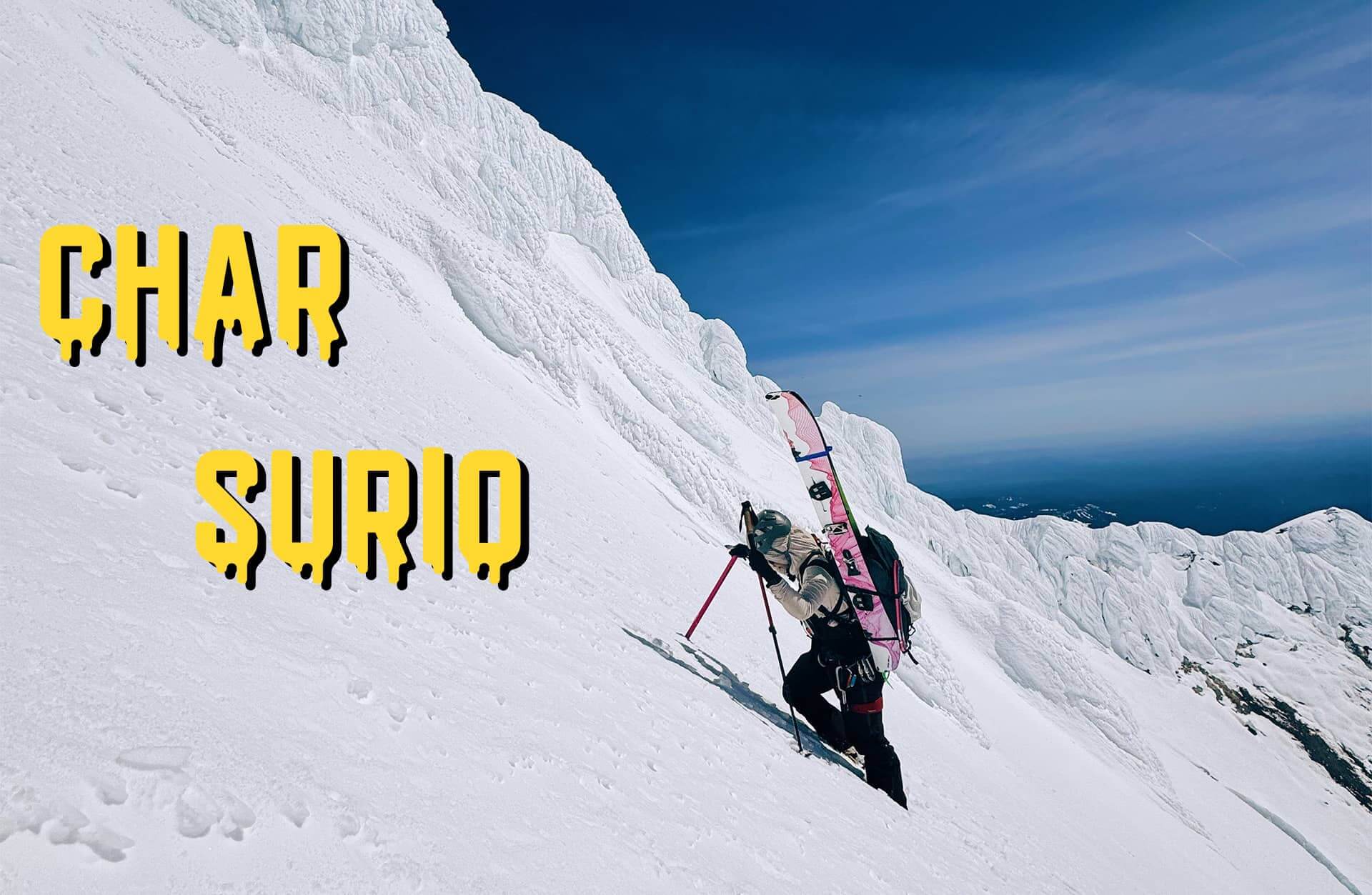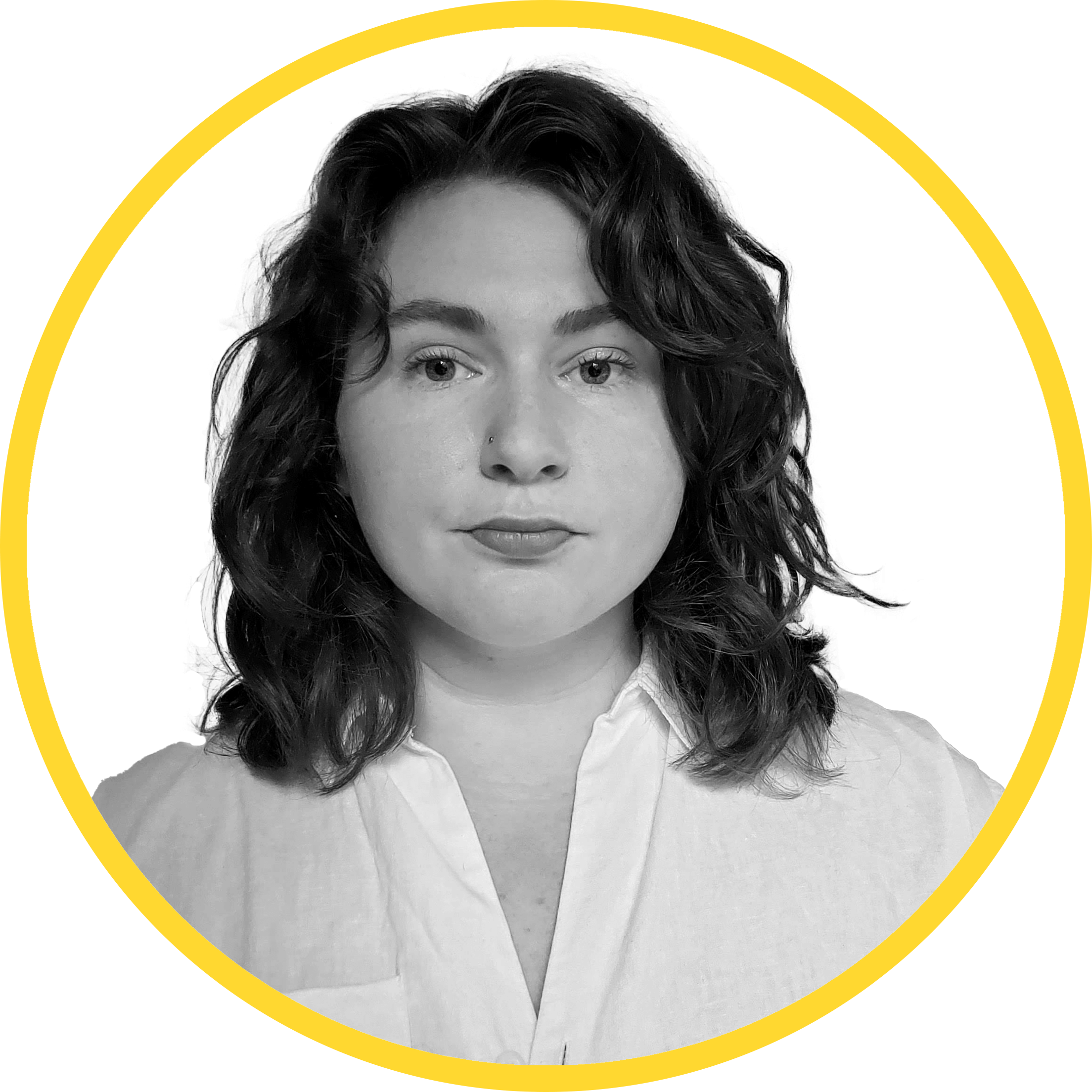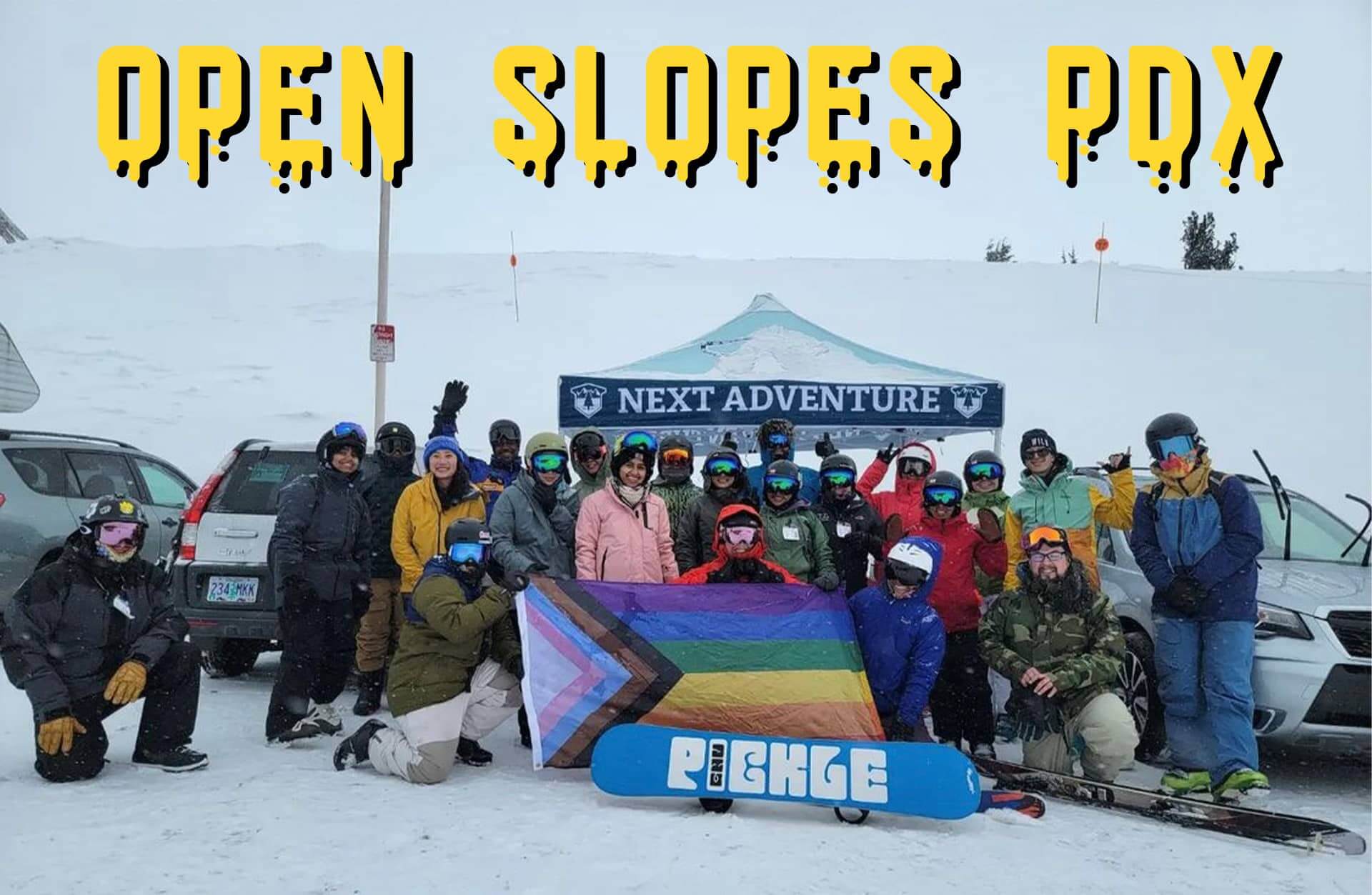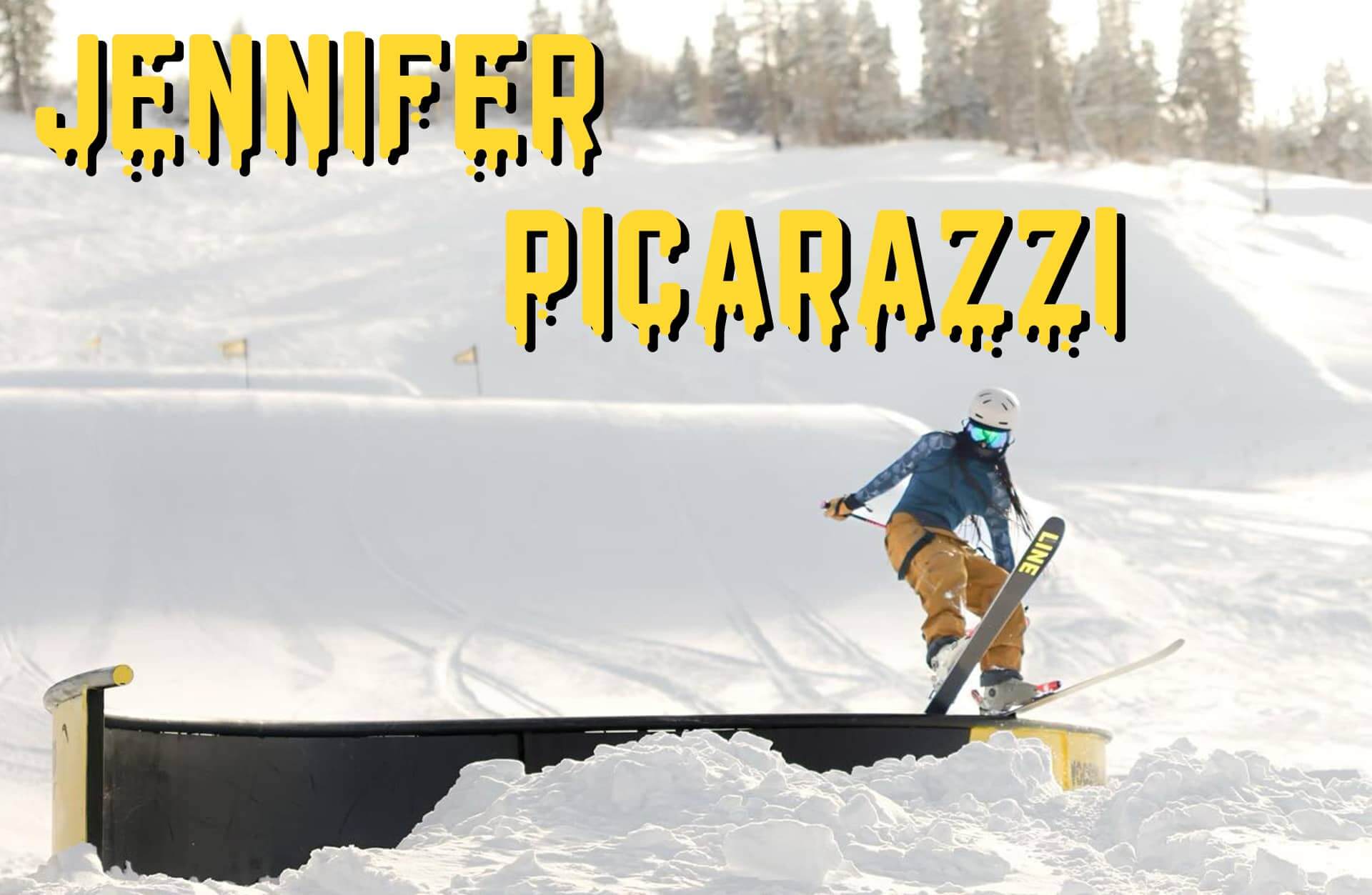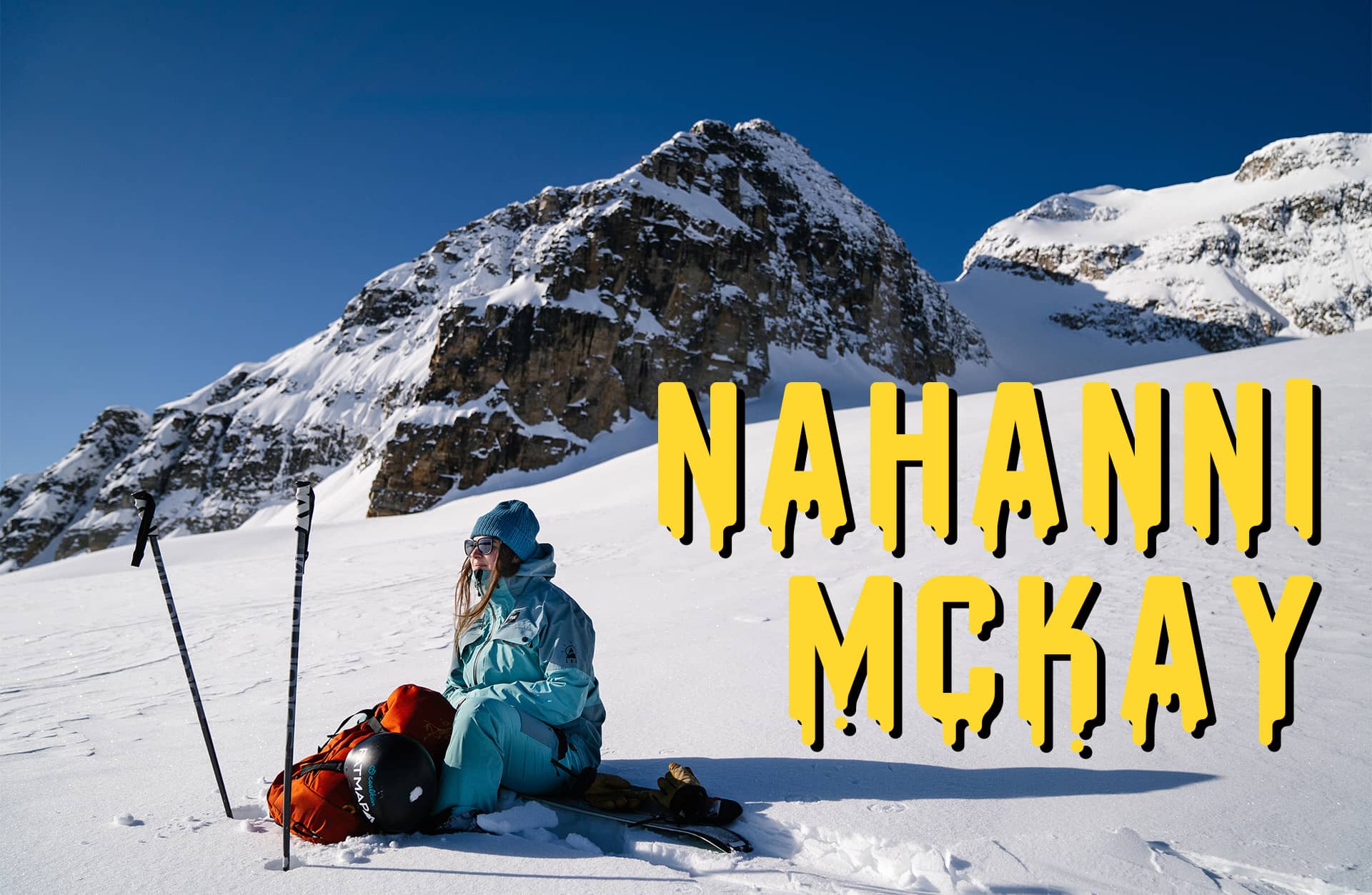SNOW // 01 JUN 2024
FINDING HER PATH
“I say all the time that I was a late bloomer granola gal,” laughed Char Surio, a passionate outdoorist. “As a kid I grew up in the Bay Area in California, and Tahoe was the closest mountain snow area, and that was still four hours away. So my family would drive there just to see the snow, touch it, look at it. Do nothing else except just see it and be in it. We were a family of six growing up. And my family, being all immigrants, me the only one born in America, of course we didn’t have the money to invest in a day lesson for two kids! Do you know how expensive that would be? Sometimes we would pass by the ski resort just to look at it and my mom would say, ‘Someday we’ll do it.’”
In other words, growing up, snowboarding was the furthest thing from Surio’s mind. Immigrating from the Philippines, Surio’s parents came to America in pursuit of the titular American Dream. More luxuries, stability, housing. So spending time outdoors, whether it be snowsports, camping, or hiking, didn’t even make the list for weekend family activities. Surio explained, “My parents grew up on rice plantations. They have six or seven siblings, and they all fit into one-room houses growing up in a rural part of the Philippines, near the rainforest and jungle. When I talk to my dad about his childhood he’s like, ‘Yeah I used to go in the jungle, but we used to have to cut things down with the machete.’”
“But they’ve raised a daughter who likes going outdoors all the time.”
The start of Surio’s granola girl evolution can be traced back to college, when she attended some university-led outdoor programs. Surio spent her time kayaking and camping with other students, while also learning the basics of outdoor recreation. Like how to pitch a tent and pack food. She had a blast and wanted to experience more. Eventually taking the next step of exploring solo.
Taking a gap year between undergrad and grad school, Surio gathered up her extra expendable income, and ran off into the woods. Though she still had a lot to learn, she was determined to have a good time, even if a natural inclination toward introversion meant there were plenty of lessons she had to learn by herself, the hard way. “I remember I took a whole week off of work during my gap year to roadtrip to three big national parks and go backpacking through them. It rained the whole week,” she said. “Except the very last day. The first night I slept in the pouring rain and the next morning I had to pack up. I was like, ‘Is there a way that I can pack this up with the least amount of rain water seeping through my tent?’ Back then, I tried to disassemble the tent underneath the rainfly, keeping the rain tarp up.”
She laughed, shaking her head, “Now, I would have just packed it up.”
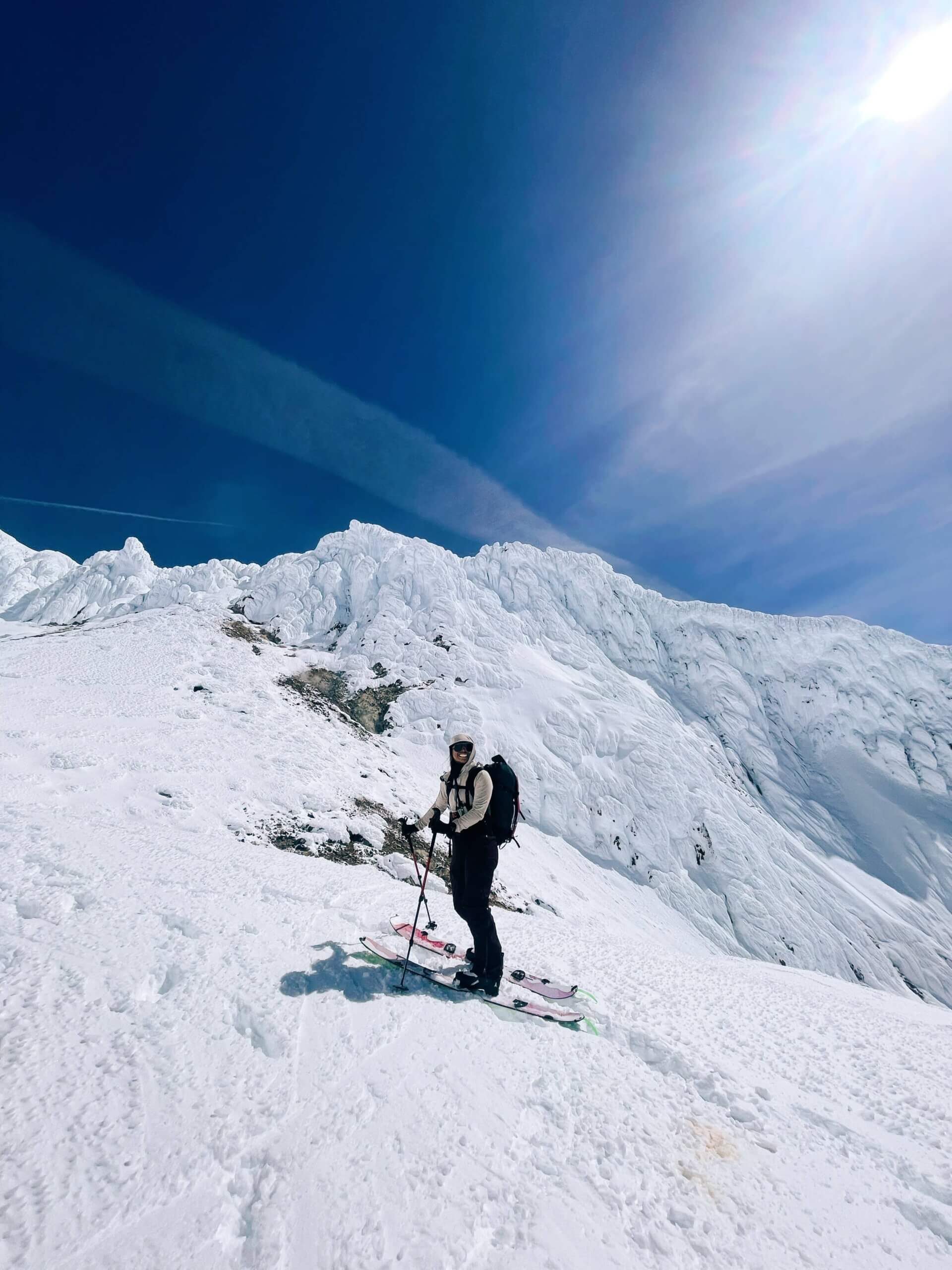
The final two pieces of Surio’s outdoor persona, climbing and snowboarding, fell in place when she moved to Colorado for graduate school. The decision came in two parts. First, “I was like, I can’t move to Colorado and not pick up a snow sport.” And the choice to snowboard? “I picked snowboarding just out of pure Johnny Tsunami aesthetic from that Disney Channel Original Movie,” she laughed.
When she wasn’t busy studying pharmacy, Surio was on the mountain learning to ride. That first season was a challenge for the athletic newbie. She recalled, “I felt very humbled that I couldn’t stand up from sitting down easily, because I have a very long-standing history of powerlifting and competitive powerlifting. I was like, I’m fit. I can do this. And then I couldn’t even stand up.”
But she kept at it, and though she wasn’t necessarily ripping down the slopes, she was having fun. She laughed, “My first season, if I could go a day without falling off the lift, it was a win.”
Butter Mag is a 100% reader supported publication. By subscribing to Butter’s Patreon for as little as 2$/month, you keep Butter churning, so that together we can create a more diverse outdoor sports community.
In many ways, moving to Colorado opened up Surio’s world. While learning to stand up on a snowboard was big, Surio also realized that if she wanted to enjoy the outdoors with fellow BIPOC athletes, she would have to seek out that community. She explained, “The Bay Area is so diverse. I grew up in a town where it was only 33% white people. Everyone I knew was Black, Hispanic, or Filipino. I was so accustomed to always seeing Brown and Black folks around me all the time. I thought that was normal. Then I moved to Colorado, and it was not normal.”
Building connections and fond memories with her BIPOC climbing community in Colorado, when Surio moved to Oregon for work, she dove deep on Instagram to find similar groups in her new home. That was how she stumbled upon a little group called Open Slopes PDX. “My initial experience with them was a social hour,” she said. “Then I started mentoring with them because at that point I had been snowboarding long enough to feel confident in teaching, and I was also getting my level one instruction certification that winter.”
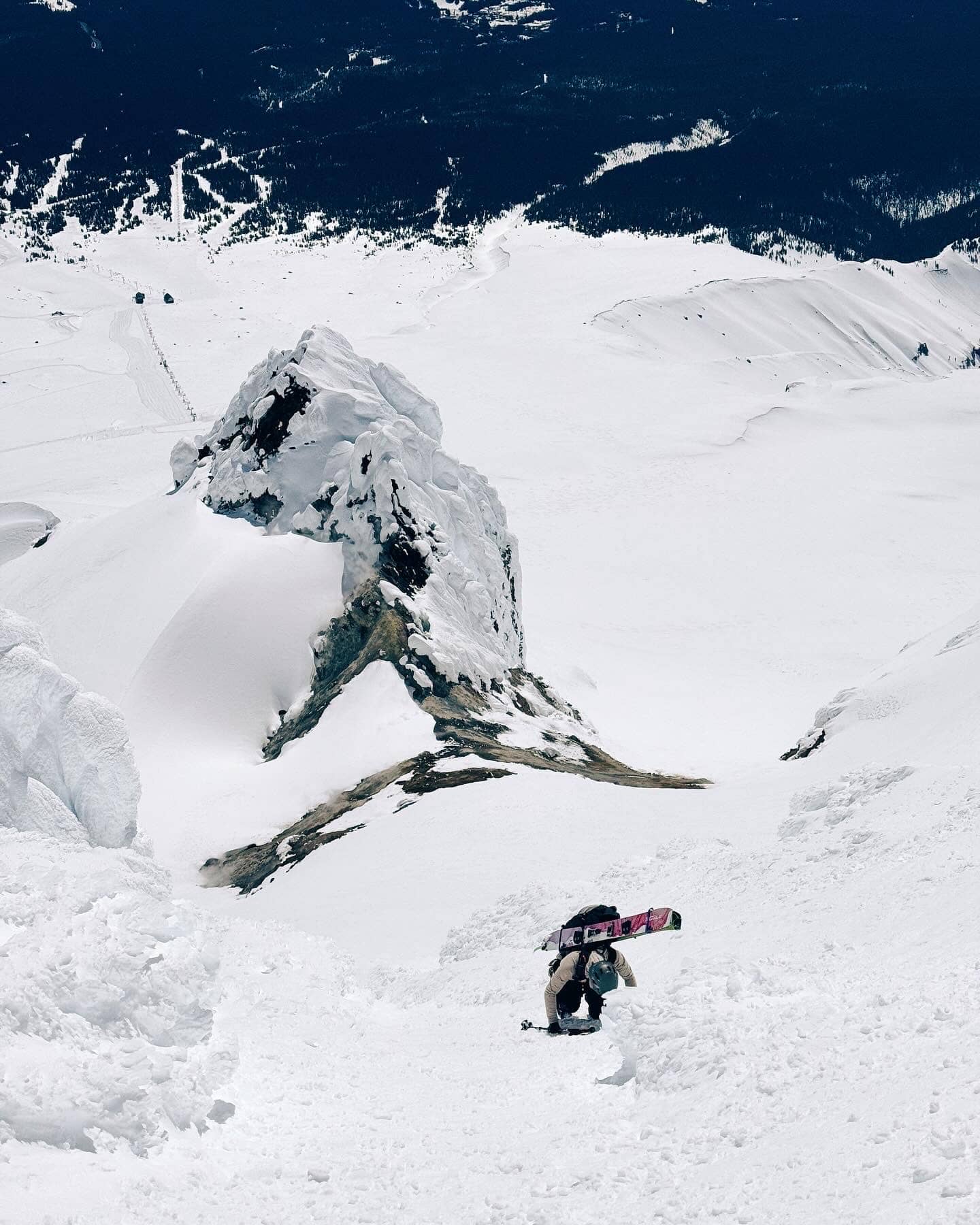
Open Slopes PDX is a community program that busts through the financial barriers to skiing and snowboarding to provide BIPOC folks interested in snowsports the opportunity to try them. Surio could not be more stoked to get beginners on the slopes. “The whole reason I got my instructor certification was to teach BIPOC folks and give them that [learning] experience for a severely reduced cost or completely free if I can help it,” she grinned. “That’s literally the only reason I do it. I don’t work with any ski resorts. I do it as volunteer work or working with affinity groups.”
While removing financial barriers is incredibly helpful for the participants, what’s even more valuable is beginners having an instructor with whom they can relate. Someone with a similar lived experience. Surio shared, “It’s not even in the outdoors specifically, just life experiences where I’ve been racially targeted or [men] say very obscene things. At work, [for example], a patient yelling at me to go back to my country, that type of thing.”
Enjoying this article? Consider subscribing to our Patreon for as little as 2$/month to ensure we can keep sharing more stories like this in the future!
Though there are of course more specific experiences of being othered as a BIPOC person in nature. Surio gave this example:
“Traveling to areas [like], Glacier National Park in Montana. I remember stopping for gas in the capital of the state, and everyone looked at me, I think because I was the only Brown person. [Then] I stopped at that same gas station on the way back, and everyone looked at me again.”
“Going to all these wonderful, beautiful places, you have to pass through a lot of rural mountain towns. A lot of the time, rural mountain towns tend to have a lot of conservative folks with white supremacist flags. It does feel very nerve-wracking, where I just have to keep my guard up because of how I have been treated by a lot of white folks. [But I can] let my guard down when I’m around a bunch of other people of color. There are people who can empathize with the lived experiences I’ve had.”
Surio loves working with all beginner snowboarders, helping them make their first slow turns down the bunny hill. But for Surio, there is something special about watching another woman of color fall in love with the mountain.
“There’s so few of us out there. I think climbing has seen a lot more female representation, but in the whole mountaineer world, I do not see it. Especially splitboarding. I find it hard to find other women in general, but especially women of color,” she continued. “I’m hoping to see a change in that in the future. And I hope it’s by their own accord, because I find a lot that a lot of the women of color I met in these more technical landscapes were dragged into the sport by a partner. So I would hope to see more women do it [because] they want to do it.”
There is a bottleneck of representation that occurs within outdoor sports where the more technical they get, the less people there are to teach that sport. For minority athletes, this means that the possibility of taking a class from an instructor that is also a minority quickly dwindles as they become more technical in their sport. Aware of this lack of representation in the education space, Surio has her eyes set on multiple certifications to allow her to translate her volunteer mentoring with Open Slopes to the backcountry.
“I thought after grad school, I’d have my career set,” she laughed. “But now I’m pursuing a completely different profession for fun, for accessibility, and equitable access. There’s also a selfish part, where few people know more in the outdoors than a guide or avalanche educator. So if I’m able to get to that level of knowing how to teach other people, then I gain a lot too, because I gain a lot of knowledge. I just like learning a lot about whatever I’m pursuing.”
“Basically after my higher education was over I was like, oh let’s just pursue more things to be a nerd about.”

In order to build a repertoire of experiences to become a mountain guide, Surio is putting her full focus on backcountry. But also, it’s just a lot of fun. “Because that’s where I feel very alive,” she smiled. “I just started backcountry splitboarding last season, so still a lot to learn. Come to find this season that after all these years of snowboarding, I’m still a shit snowboarder in powder in the backcountry. It’s so humbling. So as an athleticism point, I’m just trying to get on more types of terrain.”
In the weeks preceding the interview, Surio found new terrain when she summited Mt. Hood, and again when she summited St. Helen’s the week after with plans to climb Mt. Rainier in the making. But Surio’s mountaineering goals are not just limited to Oregon. “In Alaska, the mountain ranges are absolutely wild and beautiful,” she smiled with a dreamy look in her eyes. “I would like to ride down beautiful lines in Alaska with thoughtfulness and reverence to the native land I’m recreating on.”
Surio’s constant pursuit to reach the next level of difficulty in sports and dedication to sharing the joy she’s found with other BIPOC folks boils down to one simple motivation: “I love this outdoor life and becoming more technical at sports.”
She continued, “Am I the greatest? No. But I’m learning a lot. Just wait another 10 years and we’ll see where I’m at. I just want to do it. I will go out and pursue [a challenge] if it’s within my capabilities. If not, then I will be working towards that. I will just go out and do it, or find the resources to do it. I like being proactive about it. But it can be very intimidating to pursue by yourself, so if [you’re a woman of color and] feel intimidated, please reach out to me so we can talk! So we can enjoy [the outdoors] together.”
